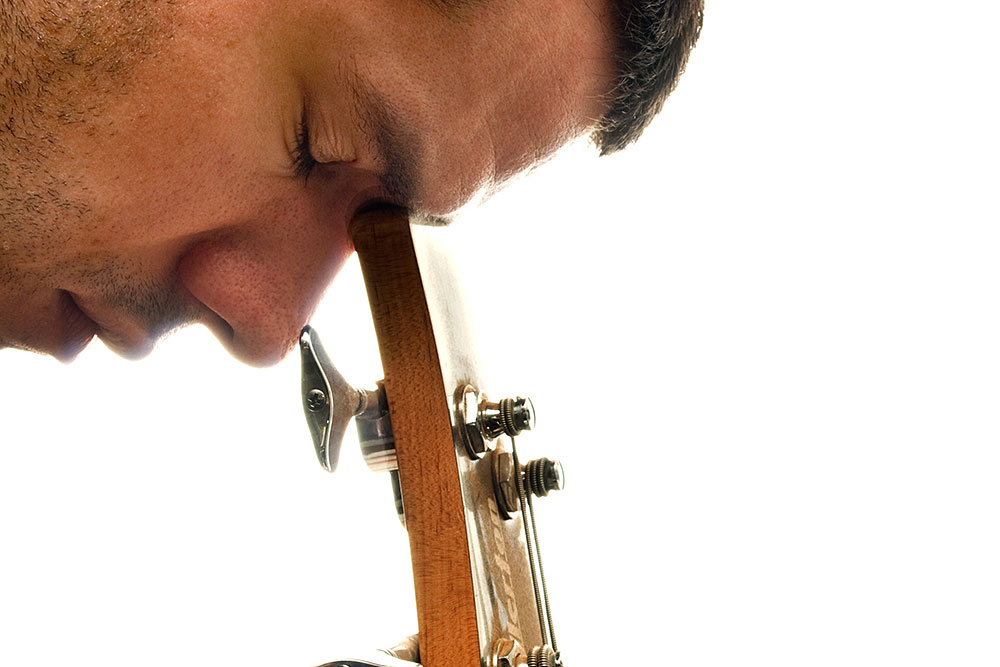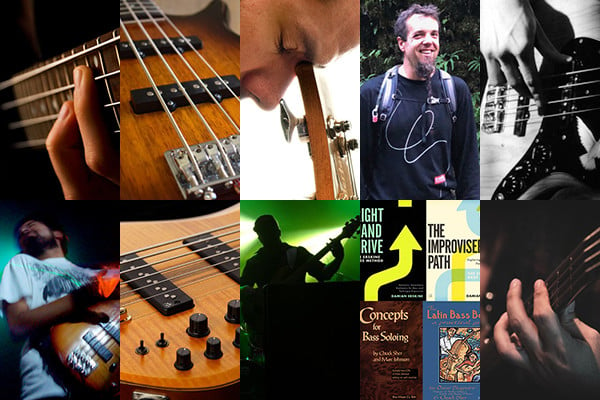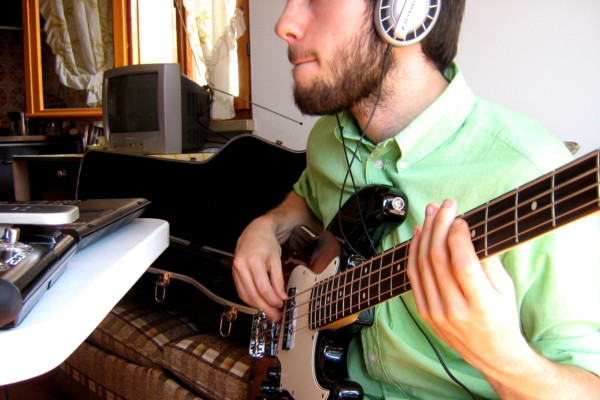Dyslexia and Music

Q: I’m 28 and I have played bass since I was 18. I’ve always been a hard-working student but always had trouble in reading music, no matter how I hard I tried. Now I’m a bass student at the Palermo Conservatory in Sicily, and despite my very good grades in all other subjects, I keep having a hard time in notation-oriented subjects. So, after doing some exams, I discovered that I suffer from dyslexia and visual-spatial disorder, which (the doctor says) prevents me from being able to read music fluently. I searched the internet but I found very few things about dyslexia and music. Have you ever stumbled upon someone who had this problem and managed to find a way to be an efficient musician? Do you have any advice? Thank you.
A: I actually know multiple musicians who have dyslexia. They run the gamut inability, style, and approach. Offhand, I can think of one student, one semi-pro, and one 100% pro (that you’ve likely heard of. Phenomenal player).
I only know enough to say that dyslexia gets in the way of sight reading. Of those folks I know that have worked on reading, they can always get it figured out and work it out in the shed, but it takes far longer, is likely more frustrating, and sight-reading was seemingly off the table for the most part. In every other facet of music and development, it was a non-issue. I have, however, also read that dyslexia can indeed affect not only the organization of visual information but also affect one’s sense of rhythm and relative pitch. I presume that there are varying degrees of dyslexia and spacial issues.
Doing a little reading, I did find some pretty interesting articles, some of which had great suggestions for how to help. Essentially, there seem to be some tricks that help you to keep your brain from flipping things around on you. Primarily, they seem to do with helping to assist your brain in the organization of the information on the page. The use of colors on the staff, proportional notation fonts and darker lines on some of the ledger-lines comprise the bulk of it.
For a nice list of suggestions, check out “How does dyslexia effect music reading?”.
This article is more geared towards the teaching of children with dyslexia.
“How the brain reads music: the evidence for musical dyslexia” has quite a bit of information about how the brain processes music visually and aurally.
And, last not certainly not least, this study is available to purchase and is the result of the authors scientific study of dyslexia and musical notation wherein they interviewed a host of musicians with dyslexia and, among other things, spoke about ways to compensate. The authors also provide “instructional suggestions for educators and musicians with dyslexia on how to use multi-sensory approaches to teach musical notation.”
Thank you for bringing this topic up for discussion. It’s likely not something that gets thought about by many but most certainly affects many musicians (whether they are aware of it or not). I wish you the best on your journey and am certain that there are ways to work around this issue. It will likely take some experimentation and possibly increase the amount of work you need to do, but it is very doable.
Have a question for Damian Erskine? Send it to [email protected]. Check out Damian’s instructional books, Right Hand Drive and The Improviser’s Path.



